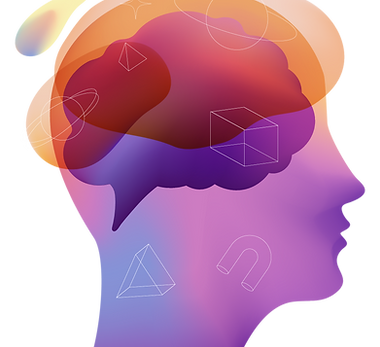

At Jenny Palmer Therapy
We have a variety of ways to treat Trauma, Self-esteem, Individuals, Groups, & Couples.
CBT (Cognitive Behavioural Therapy)

CBT for Trauma and Self-Esteem
Cognitive Behavioural Therapy (CBT) is a gentle but practical approach that helps you notice how your thoughts, feelings, and actions are connected.
If you’ve been through trauma, CBT can give you tools to manage difficult memories and triggers, so you feel safer and more in control of your life. It helps you understand your reactions and find ways to move forward without being pulled back by the past.
When it comes to self-esteem, CBT works by uncovering those harsh, critical thoughts we often tell ourselves. Together, we can replace them with more balanced and supportive ways of thinking, so you can feel more confident, value your own needs, and build healthier relationships with yourself and others.
EMDR Therapy

EMDR can be helpful for
When you’ve been through something painful, it can feel like the past is still living in the present—showing up as anxiety, self-doubt, grief, or patterns you can’t seem to break. You may want healing but feel overwhelmed at the thought of talking through every detail of what happened.
That’s where EMDR therapy can help. EMDR is a proven approach for trauma, birth trauma, grief, OCD, and self-esteem struggles—and it doesn’t require you to retell or relive the experience. Instead, it works by helping your brain process what happened so the memories lose their emotional grip.
Over time, the past no longer feels so present. You can feel more grounded, more in control, and freer to live your life with confidence and ease.
ACT (Acceptance and Commitment Therapy)

ACT for Trauma and Self-Esteem
Acceptance and Commitment Therapy (ACT) helps you create space for difficult thoughts and feelings without letting them control your life. Instead of fighting or avoiding painful experiences, ACT teaches gentle mindfulness skills and focuses on what truly matters to you. With ACT, you can begin to move toward a life guided by your values—building confidence, purpose, and resilience along the way.
IFS (Internal Family Systems)

IFS for Trauma and Attachment
Internal Family Systems (IFS) is a gentle, compassionate therapy that helps you understand the different “parts” of yourself. After trauma—especially when it involves relationships—it’s common to feel divided inside. One part of you might long for closeness, while another part pulls away out of fear of being hurt again.
IFS helps you explore these parts safely, including the protective ones that developed to help you survive painful attachment experiences. Instead of pushing them away, you learn to approach them with curiosity and care. Over time, this healing process allows wounded parts to feel seen and supported, helping you build healthier patterns of connection and trust.
With IFS, many people find more calm, confidence, and a deeper ability to form safe, nurturing relationships—with themselves and with others.
CFT (Compassionate Focused Therapy)

Compassion Focused Therapy (CFT) is all about developing a kinder, more supportive relationship with yourself. Many people who’ve experienced trauma or low self-esteem carry a harsh inner critic. CFT helps you understand where that voice comes from and gently shift toward self-compassion. By learning to respond to yourself with care rather than criticism, you can reduce shame, grow confidence, and feel safer in your own skin.
Couple Therapy for Depression

Couple Therapy for Depression
Depression doesn’t just affect one person—it can impact the whole relationship. Couple therapy provides a safe space for both partners to understand how depression is showing up between them and to work together, rather than feeling alone or on opposite sides.
In therapy, couples learn how to communicate more openly, reduce blame, and strengthen support for one another. It’s about building connection, finding new ways to cope as a team, and restoring hope and closeness in the relationship—even while navigating the challenges of depression.